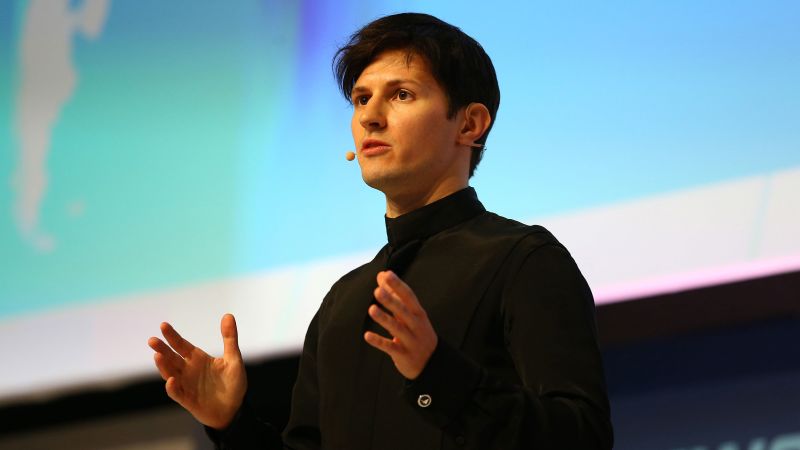French authorities detained Pavel Durov, the French-Russian billionaire and founder of the messaging app Telegram, at an airport outside Paris. He was taken into custody by officers from France’s anti-fraud office after arriving on a private jet from Azerbaijan. Durov, often called the “Mark Zuckerberg of Russia,” had not traveled to France and Europe regularly since the arrest warrant was issued. The warrant was due to the lack of moderation on Telegram, leading to its use for money laundering, drug trafficking, and sharing illegal content such as pedophilic material.
European Union regulators have been cracking down on online platforms to combat disinformation and illegal content. The Russian Embassy in France confirmed Durov’s detention and stated that they are in contact with his attorney. Telegram released a statement saying it complies with EU laws, including the Digital Services Act, and that its moderation practices are within industry standards and constantly improving. The company also emphasized that blaming a platform or its owner for abuse of the platform is absurd.
The French prosecutor’s office has not responded to requests for comment on Durov’s case. Durov co-founded Telegram with his brother in 2013, and the app boasts 900 million active users. His net worth is estimated at $9.15 billion according to Bloomberg’s Billionaire Index. Durov left Russia in 2014 after refusing to provide the Russian government with data on Ukrainian Vkontakte users. He currently resides in Dubai and holds dual citizenship in the United Arab Emirates and France.
The detention of Durov sheds light on the increasing pressure on tech companies and their founders to ensure their platforms are not used for illegal activities. As more focus is placed on cracking down on online content, companies like Telegram are facing scrutiny from authorities. Durov’s case highlights the complex legal challenges faced by tech entrepreneurs operating on a global scale. With the rise of disinformation and illicit activities online, authorities are taking a more aggressive stance towards holding platforms accountable for their content moderation practices.
The situation also raises questions about the responsibilities of platform owners and the limitations of their control over user behavior. While Telegram asserts that it follows industry standards and complies with EU regulations, the case against Durov suggests that the platform’s alleged use for illegal activities could lead to legal consequences for its founder. As regulators continue to target online platforms, the balance between freedom of expression and the need to combat illegal content remains a contentious issue in the tech industry.
Overall, Durov’s detention in France underscores the challenges faced by tech companies in ensuring platform safety and compliance with regulatory requirements. As authorities step up efforts to combat online crime and disinformation, founders like Durov are increasingly under scrutiny for the actions of their platforms’ users. The case serves as a reminder of the complexities of navigating the legal landscape as a tech entrepreneur and the need for continuous improvement in content moderation practices to meet regulatory standards.


